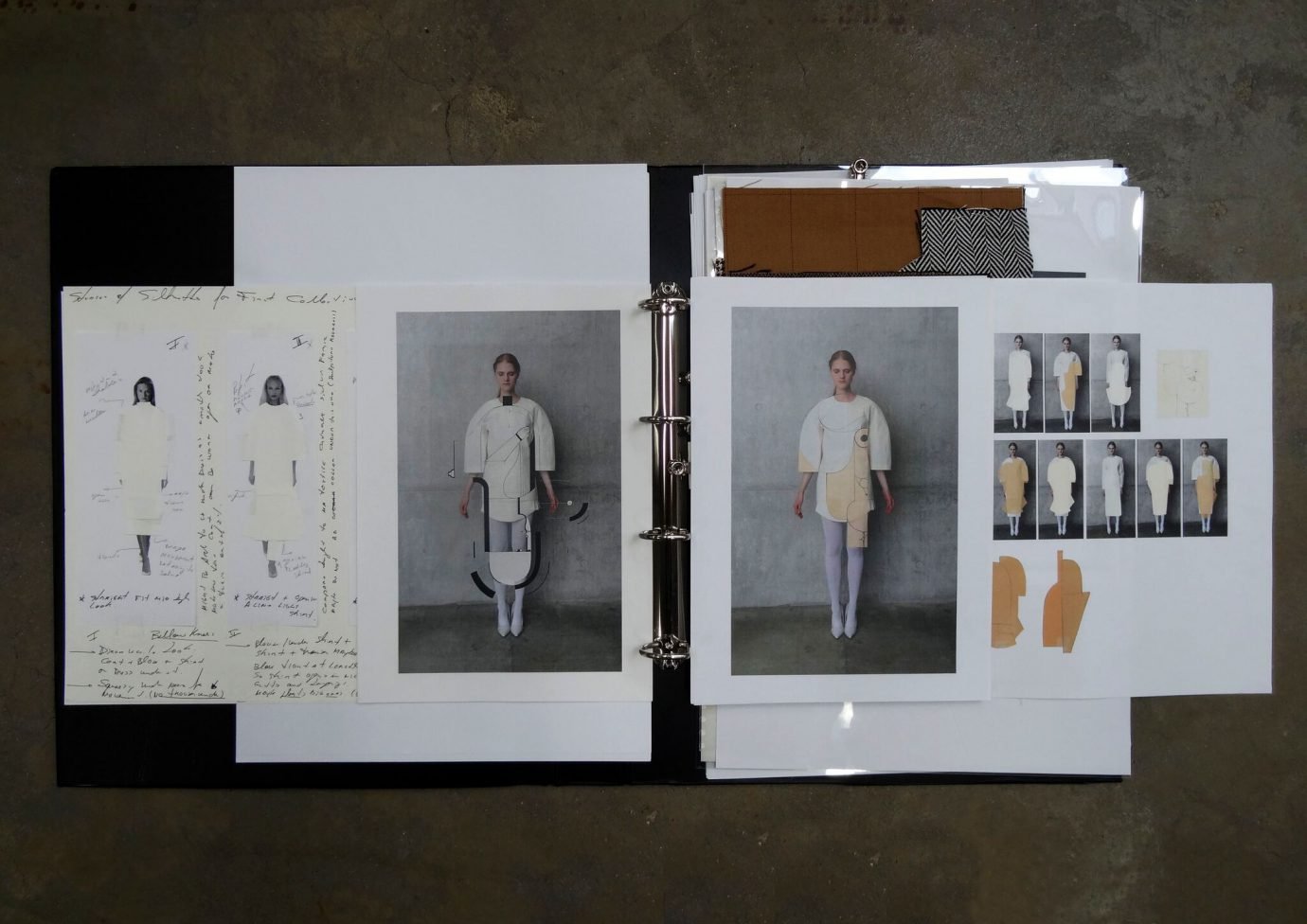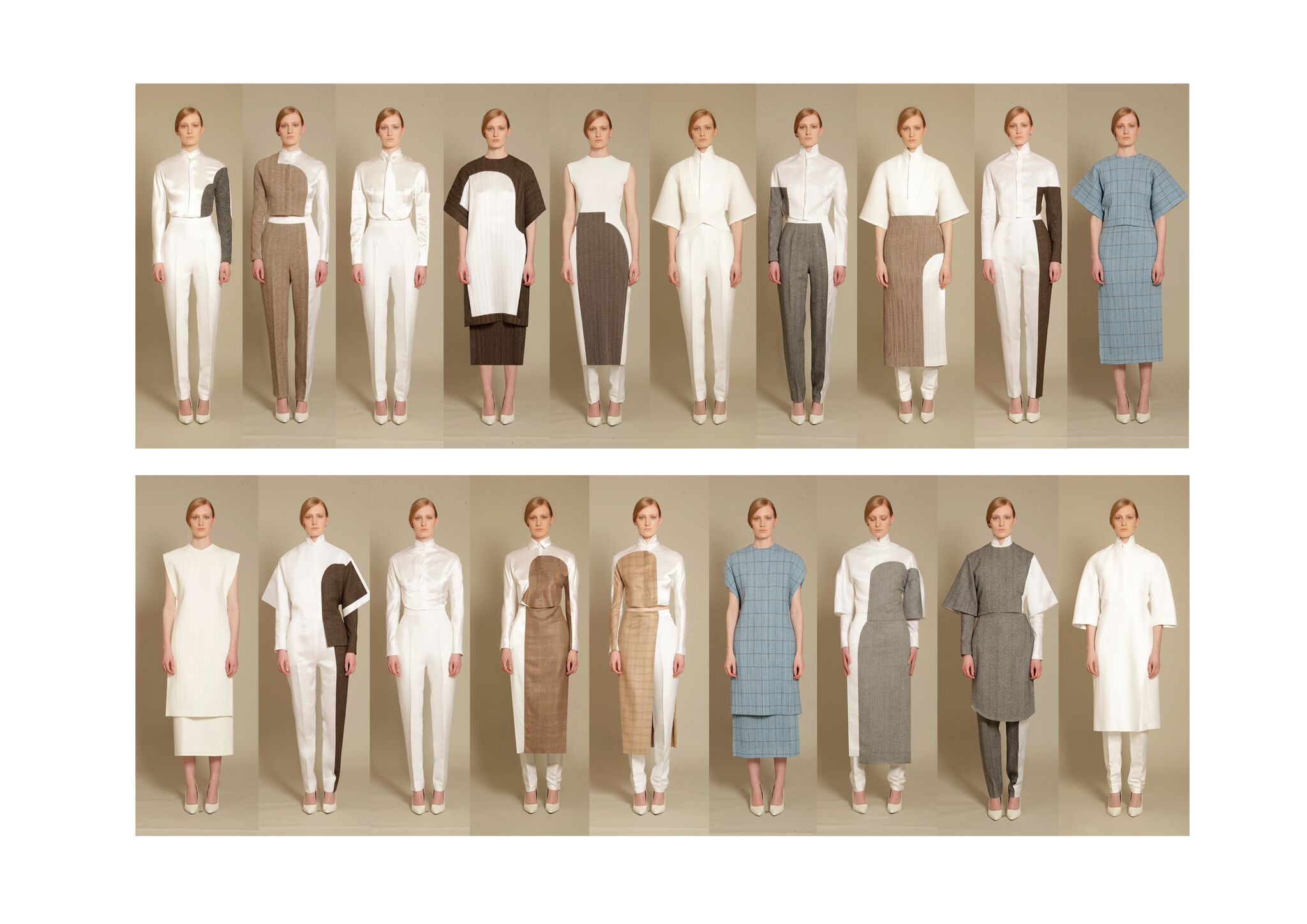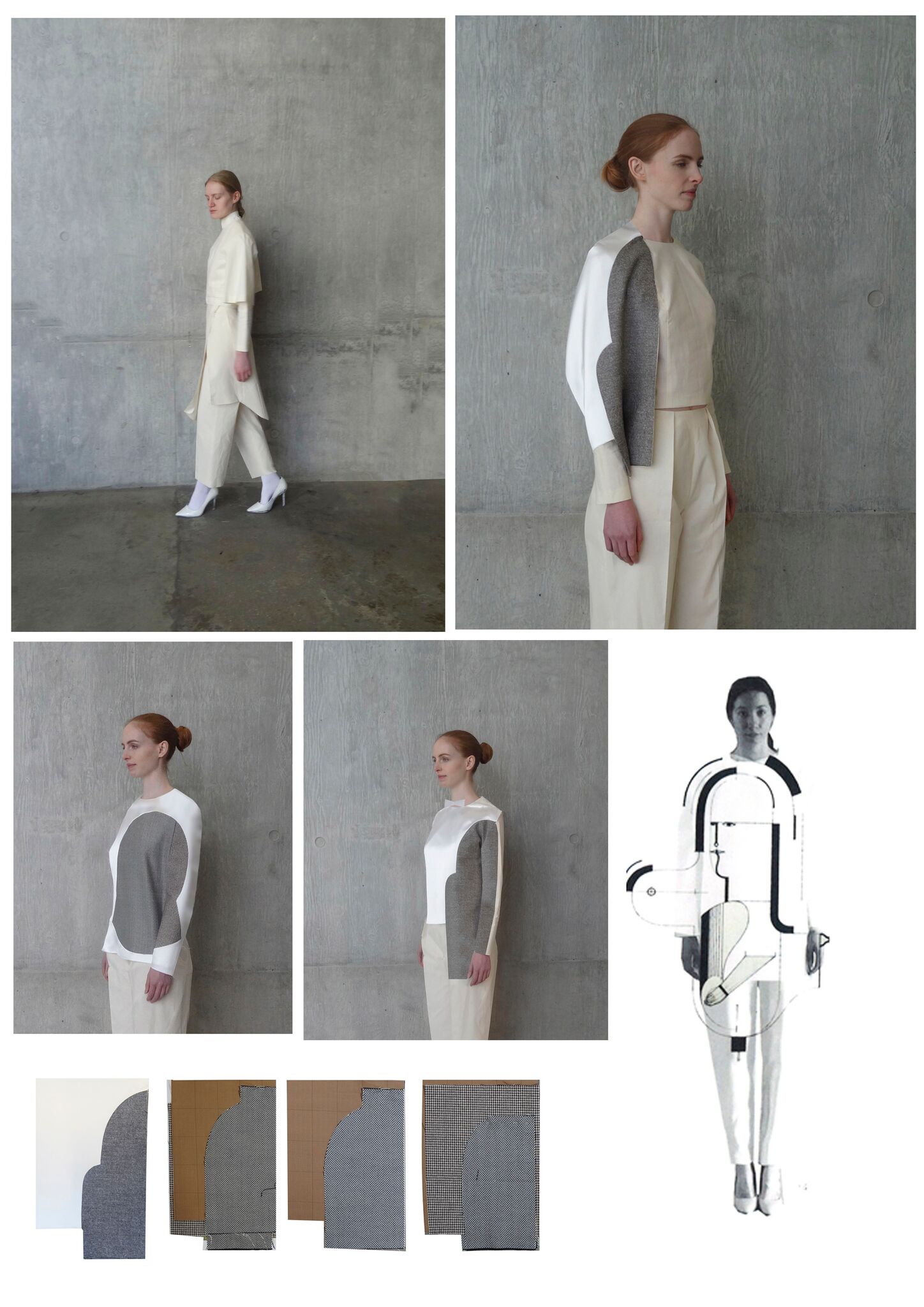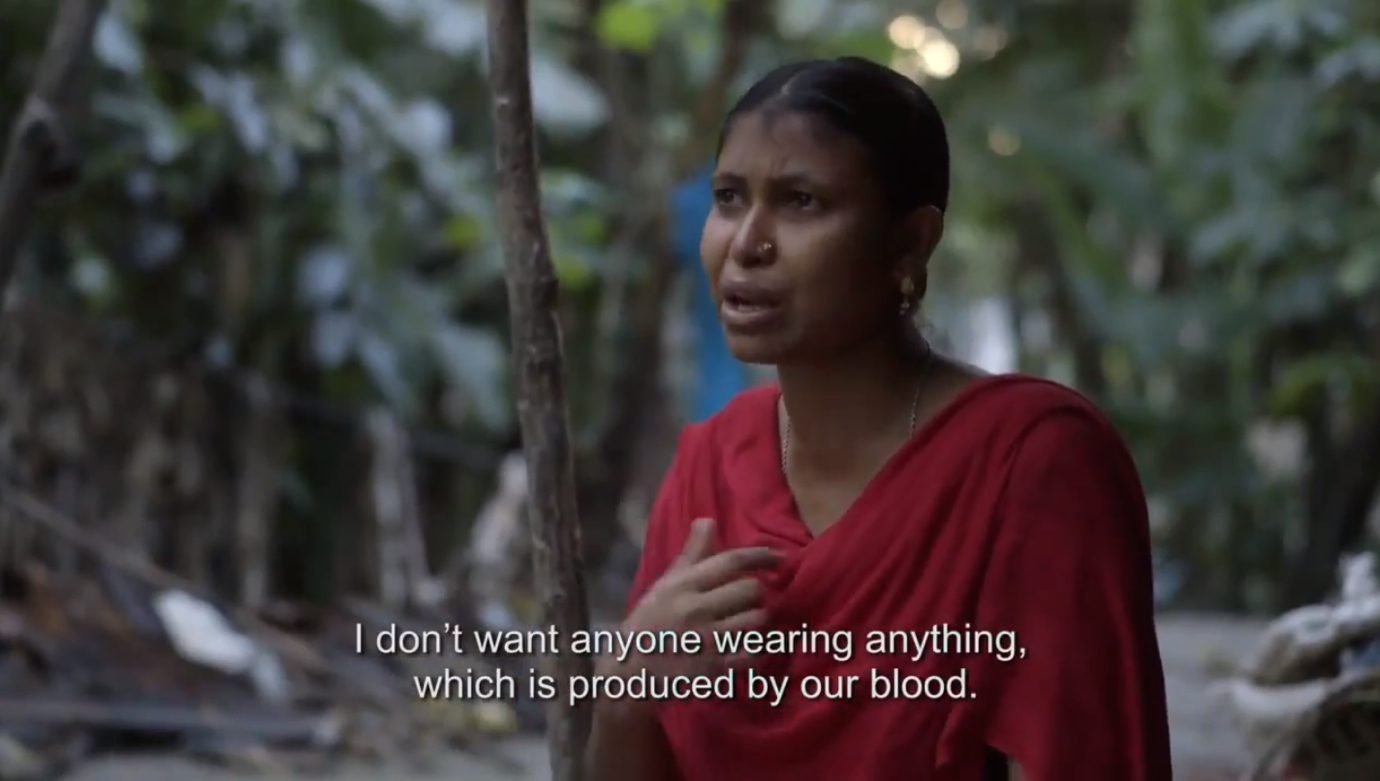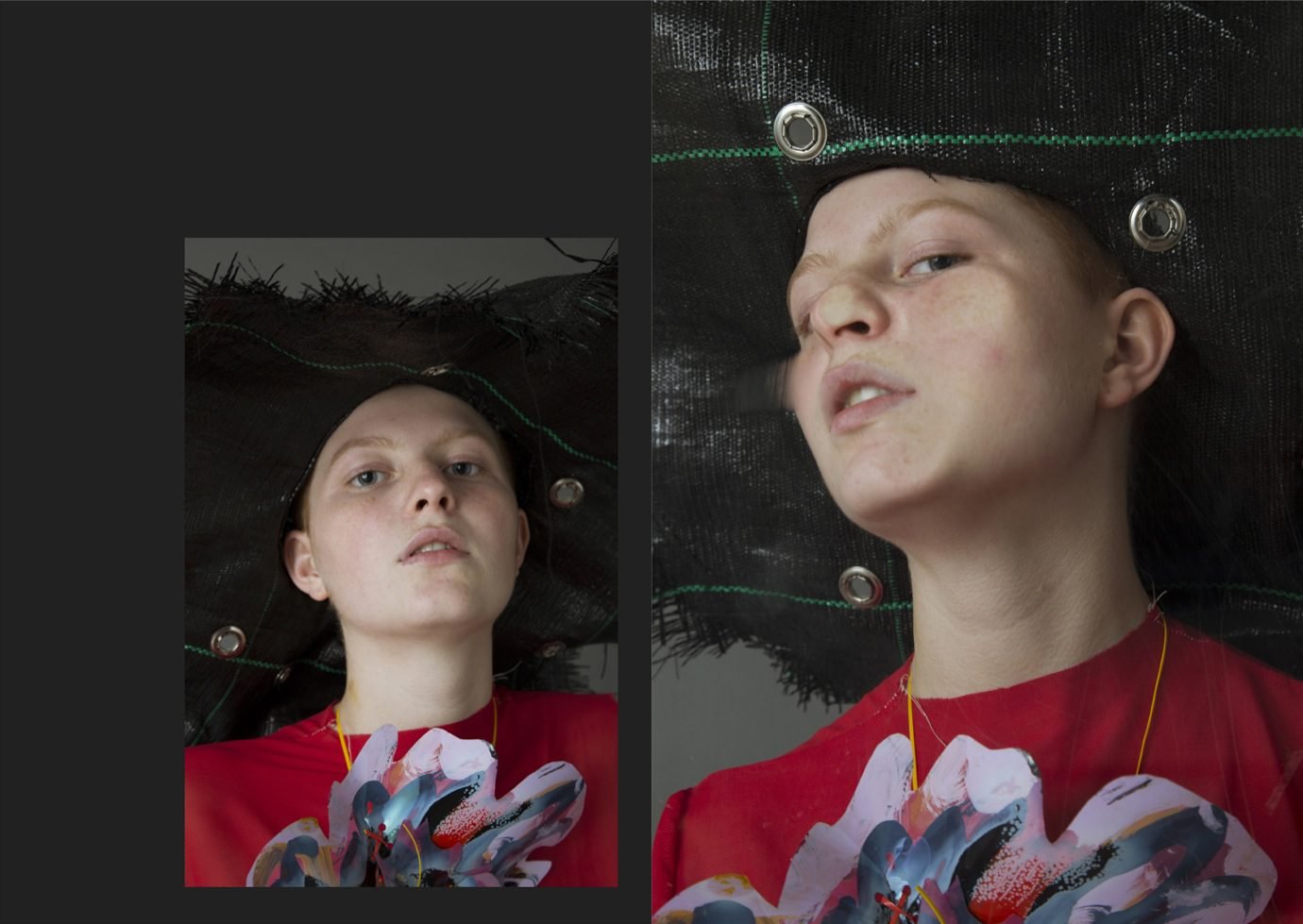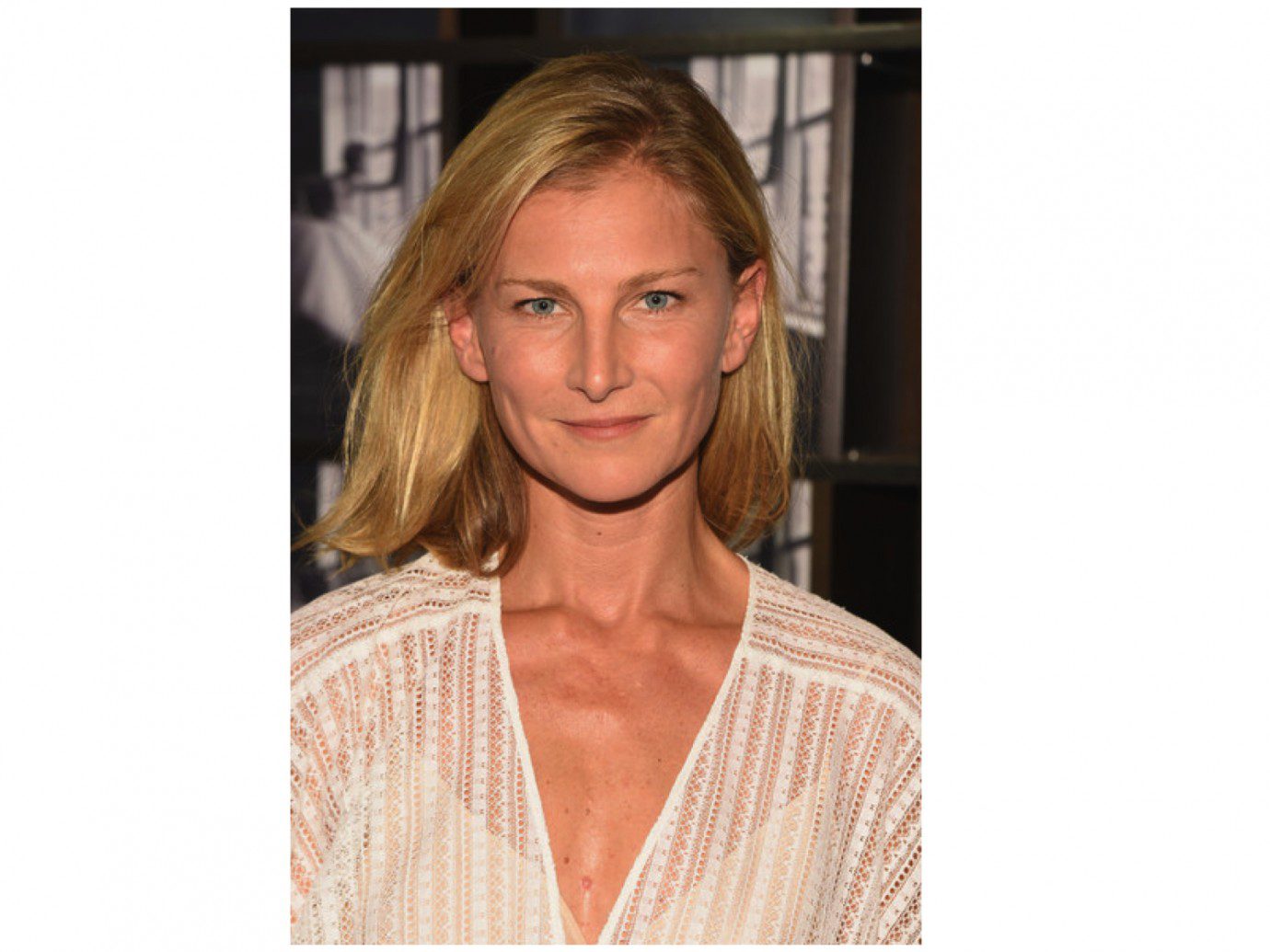Despite my best intentions, Renata leads the interview. A set of carefully prepared questions fly out the window as she takes the wheel. Her life story is succinctly described within the first ten minutes of meeting. A whirlwind speaker, her voice runs a mile a minute. I can barely catch a breath before she runs off with an answer. I grimace every time she says, “as I told you.”
Growing up in the Brazilian countryside, Renata lived an idyllic farm life amongst family, animals and nature. Her views on sustainability and animal cruelty were instilled from an early age. “I learned from my mum how to respect the animals, on so many levels,” the vegetarian designer explained, “and that’s what I did with my work.”
Renata was inspired by fashion activist Orsola de Castro who tutored the MA students on sustainability. Orsola encouraged Renata to keep going “by teaching me to have this mentality of doing what’s possible right now in order for me not to stop what I’m doing.” Renata explained that “some people will go so deep into it that they end up doing nothing, because to be as sustainable as you can get, you wouldn’t produce anything.”

